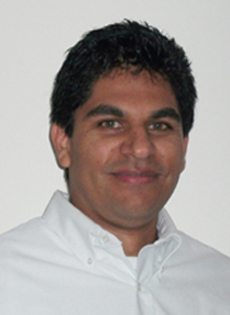
Easter and Earth Day
Monday, April 23, 2012
*Nelson Araque
While we are still immersed in the joy brought by Jesus’ resurrection — and in view of the celebration of Earth Day (April 22) — I would like us to consider how the experience of the risen Lord calls us to renew our commitment to the virtue of prudence, as well as to values such as solidarity, charity, justice and the common good, regarding the most vulnerable — the poor of earth.
Due to global climate change, God’s gift of creation is in danger. According to the Intergovernmental Panel on Climate Change, the earth is getting warmer primarily because of human actions, namely, the burning of fossil fuels. While the consumption of these energy resources has dramatically improved the lives of many of us, we also now know that this has come at a cost.
The Catholic Church, heeding the findings of the Panel on Climate Change, and embracing its teaching on the environment, reminds us of our essential duty to care about all of creation, especially its people. Important attention is directed to those most vulnerable to climate change: the poor and vulnerable at home and abroad. This has led to initiatives, such as the Catholic Coalition on Climate Change, launched in 2006 with the support of both the U.S. Conference of Catholic Bishops and the National Religious Partnership for the Environment; its goal is to educate and organize Catholics in United States around proper notions of stewardship in this age of threatening climate change.
Age-old patterns of greed, selfishness, neglect and lack of commitment to the poor are addressed anew within Church documents and by recent popes in light of environmental degradation and climate change. A prime example is the U.S. bishops’ statement of June, 2001: “Global Climate Change: A Plea for Dialogue, Prudence and Common Good.” In this statement the bishops call all persons of good will to care for creation by examining our attitudes and actions towards the environment and reminding us that creation is a God-given gift. The bishops urged us to focus especially on “the needs of the poor, the weak, and the vulnerable in a debate often dominated by more powerful interests.”
The U.S. bishops see in the virtue of prudence the key to addressing climate change. Prudence as “intelligence applied to our actions,” helps us to recognize the common good in specific situations. Regarding climate change, prudence tells us that the atmosphere, which supports life on earth, is a common good. “Each of us is called to be a steward of this very life.”
Pope Benedict XVI in his message for 2010 World of Day of Peace, “If You Want to Cultivate Peace, Protect Creation,” also recalled the long tradition of Catholic social teaching regarding the environment and stewardship. In this message our current pope speaks in terms of solidarity in the relationship between the Creator, human beings, and the created order.
Benedict XVI speaks about this solidarity in three ways: as “an urgent need,” as based on the exercise of the virtue of prudence, and as “global solidarity.” Pope Benedict XVI’s message of 2010 instructs Christians about the real motivation for fighting ecological degradation. It is “the quest for authentic worldwide solidarity inspired by values of charity, justice and the common good.”
Through the frequent and committed practice of stewardship of the earth, as the best way to fight against climate change, humans can apply the virtue of prudence and practice values such as solidarity, charity, justice and the common good. This frequent and committed practice of stewardship of the earth surely will make visible our experience of the risen Lord every day.


Comments from readers
So the ultimate question I would like to ask is, how do we as fellow Christians respond to those who favor birth control and population reductions? Aren't we supposed to be defending the pro-life agendas? We should be thinking as Catholics to be pro-life and protect the environment but don't just kill our economy. The poor deserve jobs too, but more has to be done to put to work those of us who have less. Christ did tell us there will always be the poor.